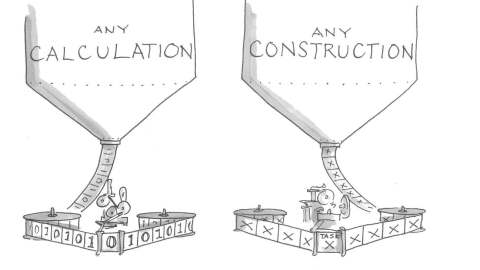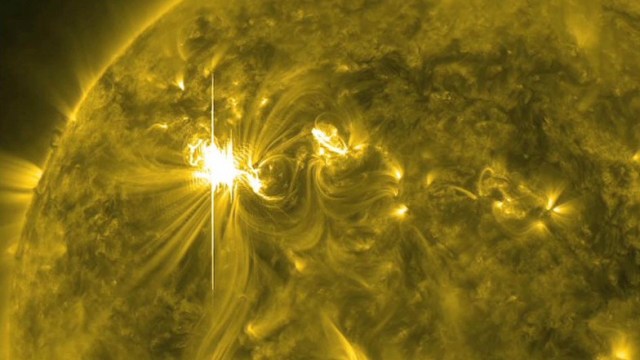Turing, and Constructor Theory, and The Logic of Universal Survivors

1. To read this you need at least 4 “universal” systems: a Turing machine (computer), language, text, and DNA.
Each has an unlimited any-ness (whereby you can use any word, run any valid program, describe any protein).
2. Similar Turing-like any-ness thinking makes possible a new kind of physics—>“Constructor Theory,” which can better explain thermodynamics, life, and perhaps even morality.
3. Alan Turing built a theory of universal calculation (as did Church and Post independently) and showed how a single device could theoretically be a universal calculator (=do any valid calculation). This formalized the idea of programmable devices (which may seem obvious now, but it had to be invented, as did text).
4. Turing described how symbols on a paper tape could tell a multipurpose machine what order to operate in, thereby universalizing it (prior “jumps to universal” systems include Jacquard looms, and Babbage engines).
5. Turing focussed only on calculable math (most math isn’t), but he inspired similar “universal” thinking in other fields.
6. Some universal features of life (of any “self-replicator”) were figured out by John von Neumann, before DNA was discovered, expressing precisely those properties. Dawkins later cast genes as replicators (replicating “by a complicated and very indirect chemical route”).
7. Such universal systems depend on digitalness, notes David Deutsch. They all have a language-like structure = discrete symbols + syntax ( = parts + composition rules).
8. Having “Turingized” quantum computers, Deutsch is now building Constructor Theory (CT), with Chiara Marletto.
9. Constructors are theoretical objects that can reliably and repeatedly perform discrete transformation tasks. “Factories, robots and living cells are good approximations to constructors.”
10. CT considers only whether transformations are possible, under the principles and laws of physics, and what objects, tasks, and logic those transformations need. (Principles, like energy conservation, constrain possible laws).
11. For physics to “explain,” say, a goat, it currently uses initial conditions and the laws of motion. So fine structure shortly after the Big Bang, somehow encodes the configuration of atoms that, billions of years later, become that goat.
12. Marletto writes that CT better explains how life, and “design” emerges from the design-free laws of physics. The details are tricky, but not important for the following.
13. Biology abounds in constructors, which like all constructors, need input objects, and “instructions” or recipes, and digital error correction. Life is deeply algorithmic (needing specific sequential logic vs prior physics-like algebra).
14. Now let’s consider what traits a “Universal Survivor” would need? Evolutionary theory currently focuses mainly on competing to reproduce, but what further principles or logic are needed to prevent extinction?
15. I’d suggest the idea that Universal Survivors shouldn’t destroy what they depend on. Since all environmental niches and ecosystems are finite, this yet-unnamed natural principle constrains evolution (perhaps call it “needism”?).
16. So, to fit the logic of Universal Survival, life must generate traits akin to human-like foresight, or it risks exhausting its resources. Likewise means of self-restraint and other-restraint (= team survival rules = morality).
17. Evolution is a grand game theorist, it blindly tests endless forms and strategies, which have generated widespread collaboration (probably selected for joint productivity).
18. Gregory Chaitin calls game theory an objective logical “theory of…morality.” Its patterns are as certain as geometry. “Moral geometry”! And we know some game-theoretic social rule sets are objectively more productive.
19. Life either generates these sorts of traits or it can’t ultimately survive (= a sort of “negative telos”).
20. We’re the only potential Universal Survivor yet known.
Illustration by Julia Suits, author of The Extraordinary Catalog of Peculiar Inventions, and The New Yorker cartoonist.





